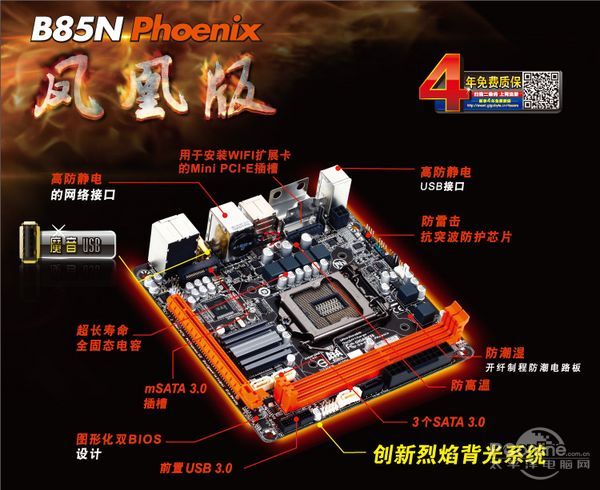Nexus 5搭配了一枚800万像素的主镜头,和一枚130万像素的前置镜头。相機軟件支援360度全景拍攝。主鏡頭具有 OIS光学防抖和HDR功能。
Nexus 5支持 4G网络。分为北美版(LG-D820)和国际版(LG-D821),两个版本之间的差异主要在网络制式方面。 [4] [5]
与 Nexus 4相同,Nexus 5没有 microSD卡插槽,在屏幕底部有一颗彩色 LED通知灯。
值得注意的是,Nexus 5 搭载了 步数检测器和 计步器。这两个传感器让应用程序可以轻松的记录用户在走路、跑步或爬楼梯时走过的步数。两个传感器均采用了低功耗设计。
软件
Nexus 5是市面上第一款搭配 Android 4.4 Kitkat的智能手机。新加入了 HDR+照片拍摄模式、 Google即时桌面、 屏幕录制程序和其他新功能和改进功能。
Nexus 5也是市面上第一款可以在手机设置的开发者模式中选择在Android Runtime[6] 环境下运行的手机。
其实说白了就是发售地区不一样,以前有种说法是港行比欧版好,其实根本就没办法验证,也没有数据资料能证明这个说法是对的,以讹传讹而已,不过即使这样还是有很多人相信,所以奸商就利用人们这个心理把港版的价格拉高,所以并不是说欧版比较便宜,应该说是港版比较贵
http://bbs.gfan.com/android-6890633-1-1.html
谷歌的Nexus 5有两种型号,分别是面向北美地区的D820,以及适用于其余地区的D821。D820和D821在配置上没有任何不同,而它们的区别在于支持的网络频段上。D820能够兼容AT&T、T-Mobile和Sprint的2G、3G和LTE网络;而D821则可兼容欧洲、亚洲等其余地区的网络频段,美版是D820,日版和港版都是D821。
美版Nexus 5支持如下制式和频段:
GSM: 850/900/1800/1900 MHz
CDMA: Band Class: 0/1/10
WCDMA: Bands: 1/2/4/5/6/8/19
LTE: Bands: 1/2/4/5/17/19/25/26/41
其余地区(D821)Nexus 5:
GSM: 850/900/1800/1900 MHz
WCDMA: Bands: 1/2/4/5/6/8
LTE: Bands: 1/3/5/7/8/20
其中LTE的band 1是联通FDD LTE的部署频段2100M(牌照没发,C114消息,想来不会有错)
而band25/26/41是sprint的LTE部署频段(FDD/TDD LTE混合组网,此外sprint的3G是CDMA制式),band 25是FDD LTE频段,band 26/41是TDD LTE频段(其中band 41 cover了中移动正在热火朝天部署的TDD LTE网络的D频段,正式商用后,大部分城市的主城区会由D频段进行覆盖),忘了说个背景,Nexus 5已经在sprint官网上有售,貌似合约价149刀,如此一来,是这款机子支持CDMA和TDD LTE的有力佐证,为此专门和sprint的在线客服确认过,记录如下:
You: Does that mean nexus 5 can work on Sprint's TDD LTE network?
You: That's what i really wanna know, thanks
Walter M.: Yes, as its a triband phone so it will work on that frequency as well.
Walter M.: I understand, you seems to be very tech specific person.
Walter M.: I assured you it will work on that frequency as well.
You: you mean i will work on TDD LTE tech?
You: 'cause FDD and TDD are two different tech
Walter M.: Yes, it will work on TDD LTE
也就是说,从官网规格和sprint的在售这一事实来看,这款机器在手,你可以随意使用如下的通信服务:
中移动的2G/TDD LTE(D频段)
联通的2G/3G/FDD LTE
电信的2G/3G(CDMA)
遗憾的是,极可能会是电信FDD LTE部署频段的1800M(band3)不在美版的支持之列,1800M是欧洲和亚太相当数量运营商LTE商用网络的部署频段(此外,欧洲主流FDD LTE频段DD 800M也不在美版支持之列)。同时,2600M的band 7(另一全球主流FDD LTE频段)美版也不支持。
Nexus 5 models 820 and 821: What's the difference?
The only thing to consider when making your purchase is mobile radio bands
Just like in many cases, the Nexus 5 isn't one but rather two different phones — the D820 and D821. The former is made for use in North America, the latter in the rest of the world. While this isn't nearly as confusing as some phones, there are still a couple of differences between the two models. Externally both models are the exact same — the case, buttons, camera and design are indistinguishable. You have the same options of storage and colors as well, which is great.
On the inside, things are almost identical. You'll find the same spec sheet for the screen, processor, RAM, sensors, Wifi and everything else. All indications are that both the D820 and D821 run the exact same software build as well — Google seems to have gone all-out trying bring "one phone" to the entire world. The only tangible difference between the two models is mobile network bands — this makes sense, as it's basically impossible to fit every necessary radio into just a single model:
North America (D820) model:
- GSM: 850/900/1800/1900 MHz
- CDMA: Band Class: 0/1/10
- WCDMA: Bands: 1/2/4/5/6/8/19
- LTE: Bands: 1/2/4/5/17/19/25/26/41
Rest of World (D821) model:
- GSM: 850/900/1800/1900 MHz
- WCDMA: Bands: 1/2/4/5/6/8
- LTE: Bands: 1/3/5/7/8/20
Now we obviously can't give a perfect list of every network in the world that each phone will work on, but at least in the U.S. the list is a bit shorter. Out of the box the D820 model will work just fine for 2G, 3G and LTE data on T-Mobile, AT&T and Sprint. Any MVNO that operates on the T-Mobile or AT&T network will be good to go as well, but things turn into a bit of a grey area once you go beyond there.
Outside of North America, the Rest of World D821 model should have no issues connecting to 2G, 3G and LTE throughout Europe and beyond. Things again get into a grey area when you head over to Asia where different and unique networks are run. What you see above is just a spec sheet — be sure to double, triple and quadruple check the bands your carrier of choice runs on before you make a purchase.
We aren't exactly to the utopian world of a single phone to work throughout the entire world, but this is pretty darn close.







